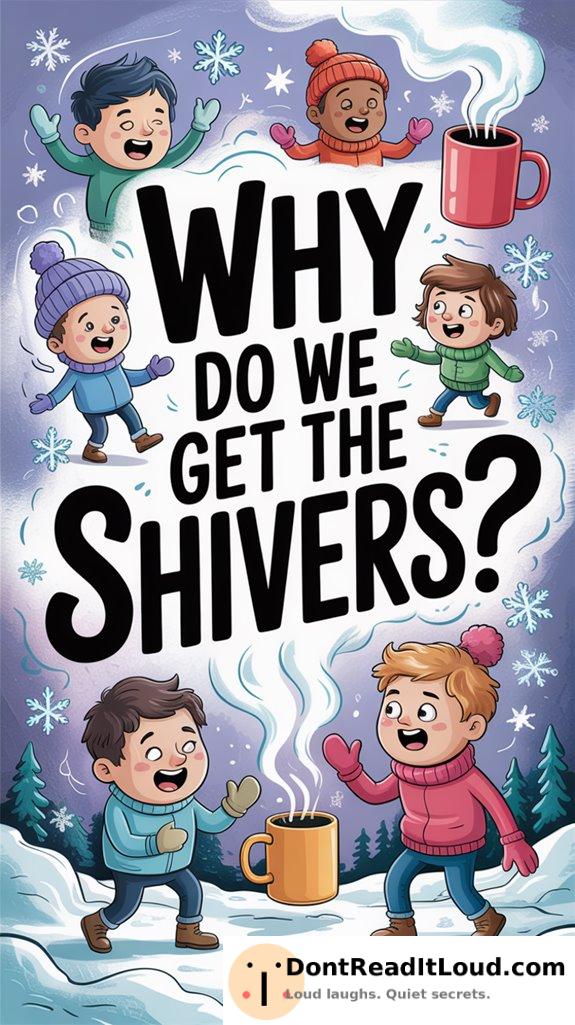
Shivers happen due to both physical and emotional triggers. When you’re cold, your muscles contract quickly to produce heat and keep you warm. Shivering also happens during intense emotions—like hearing moving music, witnessing something beautiful, or feeling deep excitement. These reactions are evolutionary tools that heighten your experiences. Learn how shivering affects you in ways that go far beyond just feeling cold.
The Physiology of Shivering
When you feel a sudden chill, your body responds with an interesting mechanism called shivering. Your muscles contract rapidly, almost like they’re performing a quick, jittery dance.
These contractions aren’t just for show—they play a crucial role in thermoregulation. Shivering warms you up by generating heat from muscle activity, even without a cozy blanket or hot drink.
Emotional Triggers and Shivers
You know that spine-tingling moment when your crush smiles at you? That’s your body celebrating with a rush of shivers.
Music, art, or a sincere compliment can spark those same chills.
The Role of Shivering in Our Evolution
While emotional shivers connect us to the moments that make life vibrant, the physical act of shivering has deep evolutionary origins.
Picture yourself as an early human braving a cold dawn, wrapped in a mammoth-hide poncho, struggling to stay warm. Shivering kicks in as your body’s built-in way to generate heat and keep you from freezing. This automatic response was crucial for surviving harsh Ice Age climates, long before we’d central heating or hot drinks.
You might’ve looked a bit silly trembling in the cold, but those involuntary shakes were life-saving. So, the next time you start to shiver, remember—it’s a survival tool passed down through generations!
Shivers and Sensory Experiences
Although shivers are often linked to feeling cold, they can also be sparked by powerful sensory moments. Imagine watching a suspenseful movie when a sudden plot twist sends chills down your spine—not because of the temperature, but your nervous system’s dramatic response!
Your body reacts to surprises with a quick burst of energy, almost like a tiny electric shock.
A moving song or touching scene can also bring on goosebumps. It’s your body’s way of saying, “That really moved me!” So next time you feel those tingling shivers, appreciate your nervous system for making life a bit more exciting. Sometimes, those unexpected thrills are better than a cup of coffee!
Conclusion
Shivering isn’t just a random body reaction. It helps control your body temperature, reacts to strong emotions, and connects you to your evolutionary history. Whether you’re cold, frightened, or deeply moved, shivers signal your body’s response. Understanding these sensations reveals more about your physical and emotional reactions, making goosebumps more interesting when you notice them.



